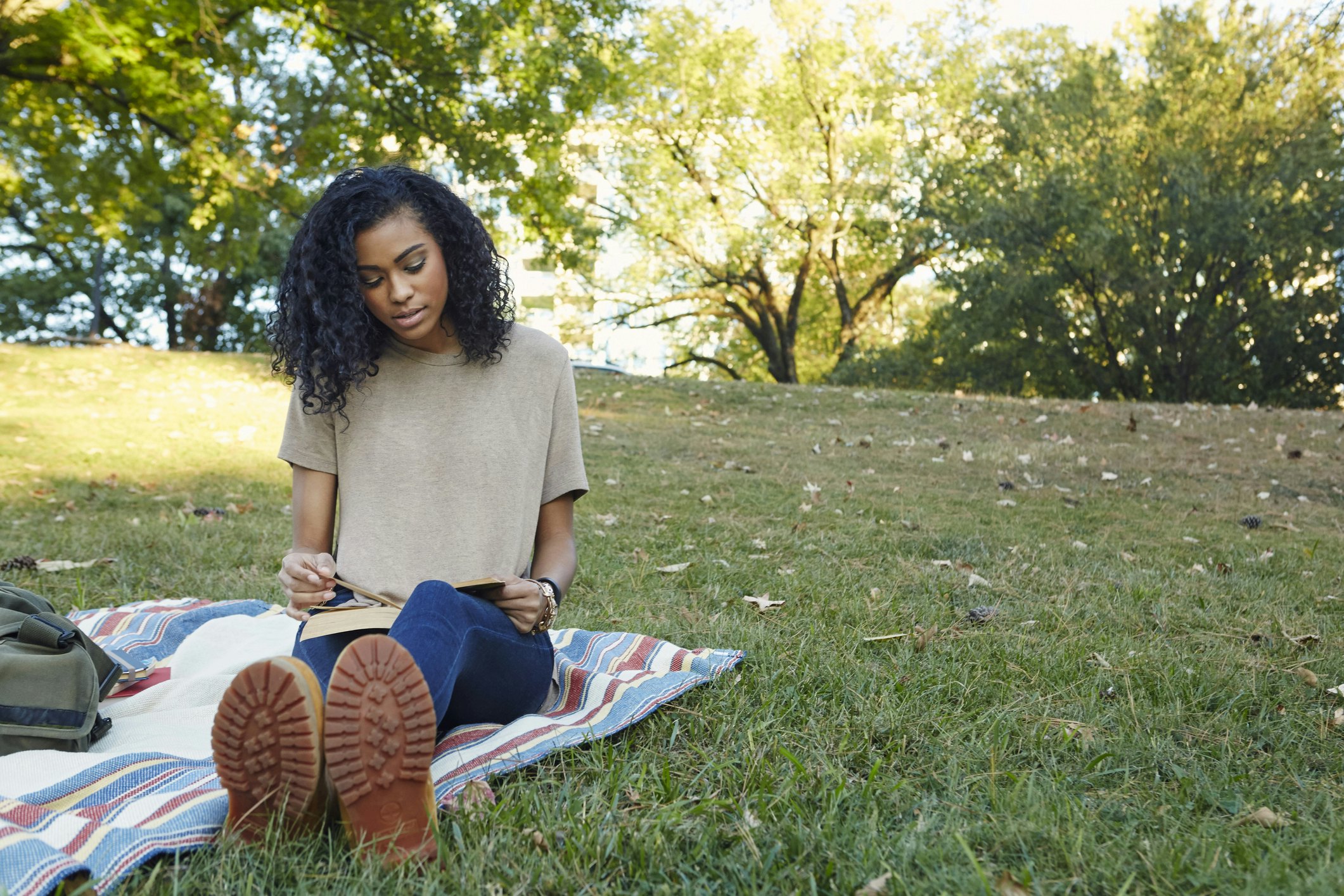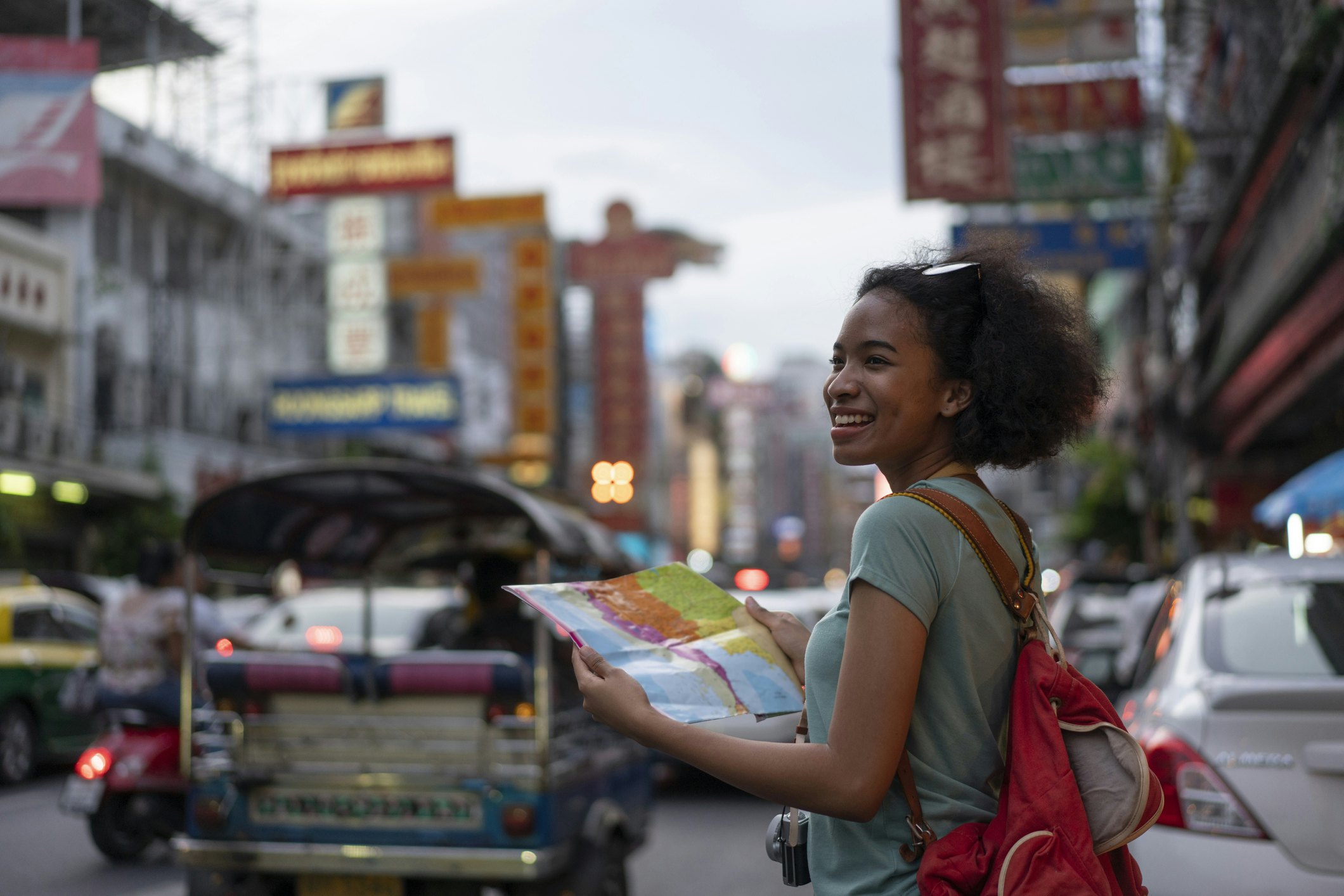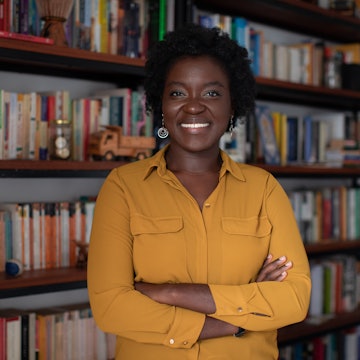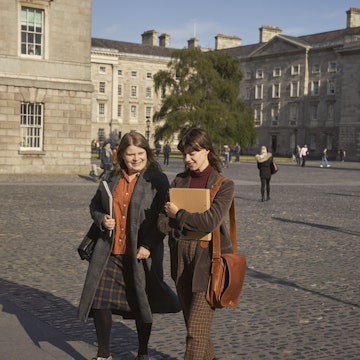
Travel the world with these 15 books by Black female writers

Travel narratives written by Black women are an important, but sometimes overlooked, part of the genre © F.J. Jimenez / Getty Images
Travel writing has been an important, but often overlooked, part of Black literature for centuries. As far back as the 18th and 19th centuries, African Americans chronicled their travels (and treatment) as enslaved people and wrote intimate portraits of how they live, work, and love in countries around the world.
Black women in particular have used this genre to weave tales of whirlwind romances, recount the experiences of racism and xenophobia that abound in many places and gain a better understanding of themselves and the world around them. Though each book tells a unique story, one theme remains constant: Black people – and Black women in particular –have settled, survived, and thrived everywhere.
Here are 15 essential books written by Black women about their travels from Alabama to the Arabian Peninsula and beyond.

1. Black Girl In Paris by Shay Youngblood
Eden Daniel is a wide-eyed aspiring writer who travels to Paris in search of inspiration, and to follow in the footsteps of her heroes, Langston Hughes and James Baldwin. But when she arrives, she learns that it is not as free as she thought—neither financially nor racially. Although her own subjectivity as a Black American with a passport, a white lover, and a series of jobs shields her from the city’s most egregious social ills, she quickly learns that race and class are not just American issues, but global ones. Still, Eden’s sobering sojourn to the City of Love leaves room for romance, hilarity, and a little creative inspiration.
2. Quicksand by Nella Larsen
Written at the height of the Harlem Renaissance, Quicksand offers an intimate portrait of early-20th century Black life in both the United States and abroad. From the fictional Southern town of Naxos, to Chicago, Harlem, Copenhagen, and, finally, rural Alabama, Helga observes and records the lives of wealthy and poor Blacks, the sometimes-patronizing nature of racial uplift, and what it’s like to live at the mercy of whites like Helga’s Danish relatives, who see her as an exotic pawn that could improve their social standing. Quicksand is both a travel narrative and a cautionary tale about the vulnerability of Black women in many spaces, and the dangers of searching for the perfect place to fit in.
3. Praisesong for the Widow by Paule Marshall
Still mourning the death of her successful husband, Avatara “Avey” Johnson sets sail on a cruise ship bound for the Caribbean and, hopefully, some new excitement in what has been a comfortable, but humdrum life. However, after a series of disturbing dreams about a deceased aunt and the summers the two spent together in South Carolina, Avey finds herself disembarking in Grenada, a place that she’s never been, but whose people, food, and customs reconnect her with her lost roots.
4. Royal Holiday by Jasmine Guillory
Vivian Forest has never been a globetrotter, but she jumps at the opportunity to spend the Christmas holiday in London with her daughter, Maddie, a stylist for the Royal family. What was supposed to be a simple and fun stint across the Atlantic gets delightfully complicated when Vivian meets the Royals’ private secretary, Malcolm Hudson. The two are a perfect match, and both agree to a holiday fling, but cutting things off at the stroke of midnight on New Year’s Eve proves to be much easier said than done.

5. Over the Lip of the World: Among the Storytellers of Madagascar by Colleen J. McElroy
Written while on a Fulbright fellowship to study the oral traditions of the Malagasy people of Madagascar, Over the Lip of the World is part translated folklore, and part adventure narrative of an African American woman going deep into the land and culture of people whose traditions are not well known to the rest of the world. With McElroy’s ear for lyric language (she is, after all, a poet), and her knack for humor, this book offers a glimpse into a unique culture, but is also a fascinating study of the ways we can collect and preserve stories from around the Black Diaspora.
6. Glory: Magical Visions of Black Beauty by Kahran and Regis Bethencourt
In a collection of stunning photos of Black children in the US, South Africa, Ghana, Cuba, and elsewhere, this husband-and-wife team interweave their photography with stories of their world travels as well as of the children’s lives. It is a celebration of exotic places, Black beauty, natural hair, and the resilience of Black children surviving in a world that does not always protect and nurture them.
7. Aftershocks by Nadia Owusu
In her debut memoir, Owusu explores the fallout of a blended family whose patriarch dies early, and she details what can happen when a child is raised to believe she can live anywhere: she often feels like she belongs nowhere. Aftershocks traces Owusu’s life in Tanzania, England, Italy, Ethiopia, and Uganda, surviving civil wars and the emotional violence that children often experience at the hands of other children and sometimes, one’s own family members. In Aftershocks, Owusu struggles to find peace with the mother she never knew and reclaims a self that felt shattered in the wake of her father’s revealed secret.
8. A Fly Girl by Amanda Epe
If you’ve ever wondered what it would be like to travel the world while living a jet-set lifestyle, then this is the perfect book for exploring those possibilities. Epe takes us from North America to Arabia, telling stories of adventure and intrigue interlaced with the social and political histories of the places her fellow British Airways crew members traveled. But it is more than a memoir of the lush life. Epe also explores the ways race and gender impacted her treatment in many places, and discusses how travel can offer a deeper sense of personal identity, and heal some old wounds.

9. Searching for Zion by Emily Raboteau
A book that began during a trip to Israel to visit a childhood friend, Searching For Zion became a decade-long exploration of the lives of Black people who left their homes to find a ‘promised land.’ Raboteau visits Jamaica, several countries on the African continent, and the American South to spend time with various groups, from Ethiopian Jews to transplanted Katrina survivors. This book, which the author herself has described as part travelogue, part cultural anthropology, and part cultural history, explores what ‘Zion’ means for different people, and how the ideal has changed throughout Black history.
10. The Heart of a Woman by Maya Angelou
In a series of autobiographies spanning five decades, Angelou details the many lives she lived: short order cook, nightclub singer, sex worker, dancer, and actress, but in The Heart of a Woman, Angelou discusses her life as a Harlem playwright, a civil rights activist, and, finally, the wife of an African freedom fighter. She travels from California to New York to London and Cairo, surviving a few romances and meeting a few famous people (like Malcolm X and Billie Holiday) in between.
11. Tell My Horse: Voodoo and Life in Haiti and Jamaica by Zora Neale Hurston
Many know Zora Neale Hurston as one of the Harlem Renaissance’s most famous writers and, most recently, as the recorder of a lost slave narrative, but she was also a trained anthropologist who completed extensive fieldwork in Jamaica as well as Haiti. Tell My Horse is a study of the religious practices, political histories and cultural norms of the two Caribbean nations, intermixed with folklore and a few harrowing tales of Hurston’s travels. Though the book’s contemporary critics lambasted her conversational style and seemingly disjointed mix of storytelling and field studies, Tell My Horse is now considered one of the first anthropological books of its kind to treat the Black Caribbean as a rich cultural repository.
12. The History of Mary Prince by Mary Prince
Few people think of slave narratives when they think of travel writing, most likely because the accounts are rarely pleasant and the travel is hardly voluntary, but The History of Mary Prince, the first narrative of a Black woman published in Great Britain, is indeed a story of one woman’s international journey. Prince, who was born in Bermuda, worked as an enslaved person in her birthplace, as well as in the Turks Islands and Antigua before landing in Great Britain. This book is a searing portrait of slavery both in Britain and its territories, and it is one woman’s fearless account of her life and the violence committed against her, which she told for one reason: to secure her freedom.

13. Meeting Faith: The Forest Journals of a Black Buddhist Nun by Faith Adiele
One of the most unique travel memoirs out there, Meeting Faith details the author’s journey to becoming Thailand's first black Buddhist nun. The narrative weaves the author’s experiences studying Buddhism in Thailand, with moments from her past to create a rich story about the ways in which traveling far outside of your comfort zone can be a catalyst for self discovery.
14. Kinky Gazpacho: Life, Love & Spain by Lori L. Tharp
Lori Tharp’s dream of finding an escape from racism is shattered when she travels to Spain as a college student and finds that the country has its own history, and present, with racism and bias. However, she also finds love and has to come to terms with the country and these experiences when she meets and falls in love with a Spaniard. The funny, but poignant book is part memoir, part travel essay and all love story.
15. Traveling Black: A story of race and resistance by Mia Bay
Historian Mia Bay gives readers a look into what traveling was like for African Americans in the Jim Crow era, when segregation and racism so restricted the movement of this community. The book particularly asks why travel and free movement was one of the freedoms that was so restricted for African Americans during the Civil Rights movement in the first place and also explores the way that Black travelers continue to resist the remnants of these restrictions to this day.
You may also like:
These books by African authors will transport you from Algeria to Zimbabwe
15 places in the US to mark Black History Month
10 Historically Black Colleges and Universities in the US you need to visit













